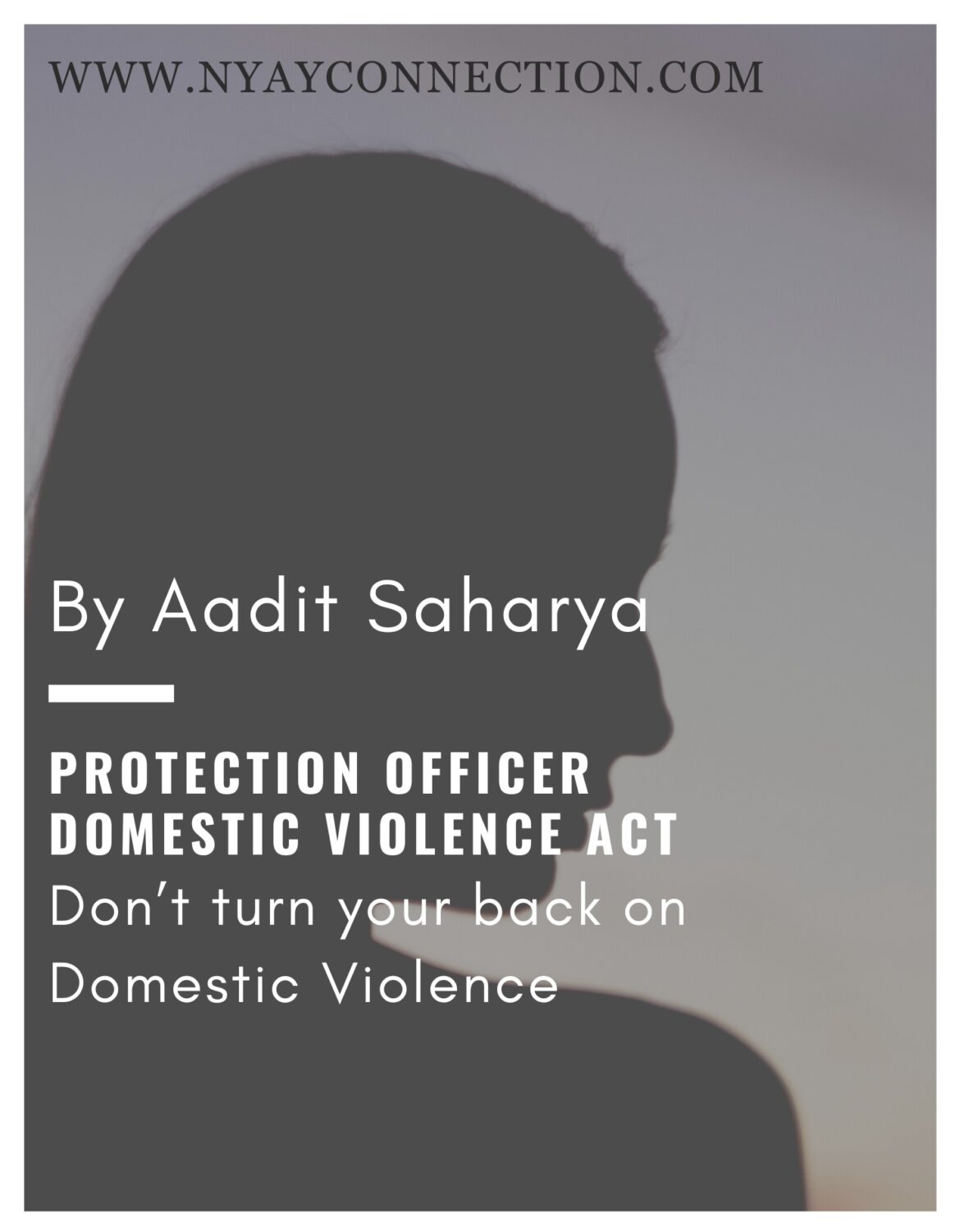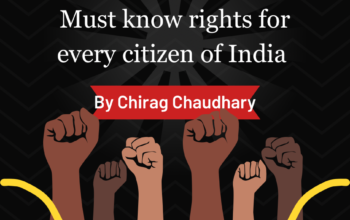The Protection Officer is a crucial component of the Domestic Violence Act, providing support and assistance to victims of domestic violence. This paper discusses the role of Protection Officers and their significance in implementing the provisions of the Domestic Violence Act. Protection Officers are appointed by the State government to aid the victims of domestic violence in seeking justice and protection. They are responsible for providing legal and medical aid, counseling, and safe shelter to victims. The Protection Officer also helps the victim in filing a complaint or registering an FIR, and to obtain an order of protection from the court. The paper also highlights the challenges faced by Protection Officers in carrying out their duties, such as lack of resources, social stigma, and the difficulty of gaining the trust of victims. The study emphasizes the need for regular training and capacity building of Protection Officers to improve their effectiveness and ensure that they are equipped with the necessary skills to assist victims of domestic violence. The paper further touches upon initiatives that can be taken up by the government in order to strengthen the capacity of Protection Officers, streamline the process of reporting and investigating domestic violence cases, and create awareness campaigns to educate the public on the importance of reporting domestic violence.
INTRODUCTION:
Domestic violence is a complex issue that affects women of all ages and backgrounds. It can have severe and long-lasting physical, emotional, and psychological effects on victims and their children. The Domestic Violence Act, 2005, is a legislative framework that seeks to protect victims of domestic violence and provide them with the necessary support and assistance. Protection Officers are a key component of this framework and are tasked with ensuring that victims of domestic violence receive the protection and support they need. They play a critical role in helping victims navigate the legal and social systems, accessing necessary services, and staying safe from further harm.
Protection Officers are typically trained professionals who have a deep understanding of domestic violence and its impact on victims. They must be compassionate and empathetic while also being able to remain objective and impartial in their work. They work closely with victims to develop safety plans that are tailored to their individual needs and circumstances and are available to provide ongoing support and assistance as needed.
Protection Officers are an essential part of the response to domestic violence and are vital in ensuring that victims receive the protection, support, and assistance they need to rebuild their lives and break the cycle of violence.
Their main role is to ensure that the provisions of the Act are enforced and that victims receive the necessary support and protection. Protection Officers are responsible for a range of duties, including: Providing information and assistance to victims of domestic violence, conducting risk assessments, securing protection orders from court, facilitating access to legal services. The Protection Officers play a critical role in addressing domestic violence and ensuring the safety and well-being of victims. They are responsible for providing assistance to victims, conducting risk assessments, issuing protection orders, facilitating access to legal services, and coordinating with other agencies. Their work is essential in creating a safe and supportive environment for victims of domestic violence.
ROLES AND RESPONSIBILITIES OF PROTECTION OFFICERS:
The Protection Officer is a key figure in the implementation of the Domestic Violence Act (DVA) in many countries. Their role is to ensure that the provisions of the Act are implemented effectively and that the victims of domestic violence receive the necessary protection and support. Some of the roles and responsibilities of Protection Officers under the Domestic Violence Act include:
Assistance: Protections Officers can help the magistrates in discharging their functions and prepare the Domestic Incident Report and forwarding it to the magistrate.
Counseling and support: Protection Officers are responsible for providing counseling and support to victims of domestic violence. They may refer victims to appropriate support services, such as counseling, legal assistance, or medical services.
Enforcing orders of the Court: Protection Officers are responsible for enforcing the orders of the Court for monetary relief to the victim.
Maintaining lists: Protection Officers are responsible for maintaining list of service providers who can provide legal aid and counselling to the aggrieved raising awareness about domestic violence and providing training to other professionals, such as police officers, social workers, and healthcare professionals, on how to identify and respond to cases of domestic violence.
Shelter homes and medical examination: Protection Officers are responsible for providing shelter homes to the aggrieved if required.
Medical examination: Protection Officers are responsible for getting the aggrieved medically examined if the aggrieved has sustained bodily injuries by the abusers.
Hence, the Protection Officers play a crucial role in ensuring that victims of domestic violence receive the necessary protection and support. Their roles and responsibilities include enforcing the orders of the court, providing protection to victims, providing counseling and support, assisting victims in seeking relief from courts, raising awareness and providing training, and providing them shelter etc.
ENHANCING THE EFFECTIVENESS AND EFFICACY OF PROTECTION OFFICERS:
In order to be more effective, protection officers under the Domestic Violence Act require a comprehensive approach that involves increasing resources, improving training, strengthening coordination among agencies, addressing stigma and shame, empowering victims, developing specialized services for children, fostering a supportive work environment, and advocating for policy changes. By advocating for increased funding, staffing, and equipment, protection officers can provide better support to victims of domestic violence and respond more effectively to emergency situations.
Here are some strategies that can help:
Increase resources: Advocating for increased resources, including funding, staffing, and equipment, can help protection officers to provide better support to victims of domestic violence and respond more effectively to emergency situations.
Improve training: Providing ongoing training to protection officers, including training on cultural competency, legal procedures, and trauma-informed care, can help them to provide more effective support to victims and navigate complex situations.
Strengthen coordination among agencies: Building relationships and improving communication among agencies involved in domestic violence cases, including police, social services, healthcare providers, and legal professionals, can help to ensure a coordinated and effective response.
Address stigma and shame: Raising awareness and promoting education about domestic violence can help to reduce stigma and shame and encourage victims to seek help.
Empower victims: Providing victims with information about their legal rights, options, and available resources can help to empower them to make informed decisions and take action to protect themselves.
Develop specialized services for children: Developing specialized services for children who witness domestic violence, including counseling and support, can help to address their unique needs and provide them with the resources they need to heal.
HOW TO CREATE AWARENESS AMONGST PUBLIC:
Creating awareness on the topic of Protection Officers under the Domestic Violence Act is crucial in ensuring that victims of domestic violence have access to the protection and support they need. To create awareness on this topic, various strategies can be implemented, such as utilizing social media platforms, collaborating with relevant organizations, hosting seminars and workshops, utilizing traditional media, and distributing information materials. Social media platforms such as Facebook, Twitter, Instagram, can be utilized to share information on Protection Officers and their roles and responsibilities. Collaboration with organizations that work with victims of domestic violence can help in spreading awareness on Protection Officers and the services they offer. Hosting seminars and workshops in schools, colleges, and community centers can educate people on Protection Officers and their role in preventing domestic violence. Utilizing traditional media such as newspapers, magazines, and radio can also be effective in creating awareness. Finally, distributing information materials such as brochures, pamphlets, and posters can provide information on Protection Officers, their roles, and the services they offer. By implementing these strategies, awareness on Protection Officers can be raised, and victims of domestic violence can be better protected and supported.
CONCLUSION AND OPINIONS:
Protection officers play a critical role in addressing domestic violence and ensuring the safety of victims. They work closely with victims to provide them with support, guidance, and resources to help them leave abusive relationships and rebuild their lives. Protection officers also work with other agencies and stakeholders to ensure that domestic violence cases are appropriately investigated, and perpetrators are held accountable for their actions. While the work of protection officers can be challenging, it is also incredibly rewarding. They have the opportunity to make a significant difference in the lives of victims and their families and help break the cycle of abuse. It is crucial to recognize the importance of the work of protection officers and provide them with the necessary training, resources, and support to carry out their duties effectively. By doing so, we can continue to address the issue of domestic violence and create safer communities for everyone.
This article is written by Aadit Saharya. Aadit is a law student at Symbiosis Law School. For feedback relating to this article, he may be emailed at aaditsaharya.legal@gmail.com.
If you are also a law student or a legal professional and wish to contribute to the website, you may email your submission at nyayconnection@gmail.com.




